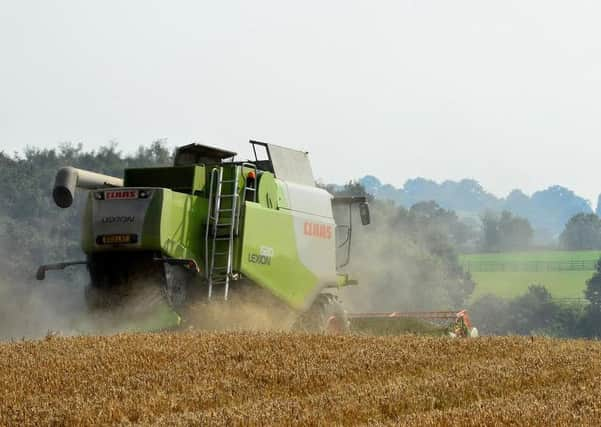Anne McIntosh: Can farmers reap benefits of EU exit?


From the moment we leave the EU, we will no longer be part of the Common Agricultural Policy and it is, therefore, worth considering what life was like for farmers before Britain joined the Common Market in 1973.
Against the backdrop of post-war food shortages and food rationing, Britain introduced an annual price review in 1947 with prices fixed for main crops.
Advertisement
Hide AdAdvertisement
Hide AdThen, when world cereal prices fell in 1953, minimum guaranteed prices were replaced by deficiency payments for cereals, giving stable prices with guarantees over the scale of price falls.
Farm incomes went up, enabling farmers to make capital investments and use the latest technology. This was particularly the case in arable farming where incomes rose faster than in other sectors. However income on dairy, upland and small farms did not rise so quickly, with less scope for mechanisation.
With Britain’s entry into the Common Market in 1973, the system of price support changed from deficiency payments to protection and intervention payments. Monetary Compensation Amounts were introduced to keep prices similar in different countries and farm prices stable.
Within a comparatively short period of time, the UK farming went from a time of shortages and rationing to one of plenty.
Advertisement
Hide AdAdvertisement
Hide AdAs a general rule of thumb in farming, when one sector is doing well, other sectors may be down. The current trend over recent years has been for farm-gate prices to remain low, benefiting the consumers but leaving upland farmers struggling in particular.
Food security is a major concern as Britain is currently only 62 per cent self-sufficient. This means that a poor harvest at home, or political instability abroad in one of our major markets, could push us into food insecurity. So it makes sense to focus on exports.
The Agricultural and Horticultural Board is leading the drive for exports and I am delighted that its expert Jean Pierre Garnier, is coming to Thirsk on Thursday to address local farmers and set out potential opportunities for meat exports.
Of potential markets which might be available, Australia has been mentioned. However, we should note that Australia has a market of 24 million consumers, whereas we are at present trading within an EU bloc of over 500 million consumers. Australia currently has a quota limiting the amount of lamb which can be exported to the UK. Any potential new deal that might give greater opportunities for Australian farmers to export more to the UK must be negotiated on a reciprocal basis.
Advertisement
Hide AdAdvertisement
Hide AdFarmers were keen to vote for Brexit as a means of reducing the regulatory burden on their businesses. However, in my experience, many of the regulations do not emanate from the EU but from Whitehall departments like the Department of Environment, Food And Rural Affairs. Post-Brexit, Parliamentarians and others must be vigilant to ensure that there is a genuine reduction in the regulatory burdens.
As regards trade, there are three likely scenarios open to Britain: negotiating access to the single market and accessing the four freedoms including free movement of people; seeking access of the single market but without access to services; or agreeing tariffs and access along the lines of the World Trade Organisation.
What can the farmers do differently to secure a sustainable future post-Brexit? One obvious way is to work more closely with nature: look to more seasonality in sourcing foods; substituting home-grown foods and products such as cheese over imports and seeking ways of working with nature to protect against future floods so protecting local communities.
In protecting against floods, simple measures such as planting trees, creating bunds and mini dams and temporarily storing water on farmland could be recognised and reimbursed as an instrument of public good by a British government in much the same way as the EU Common Agricultural Policy environmental schemes do at present. The Slow the Flow pilot project at Pickering is a gold standard flood defence scheme which could be rolled out across the country.
Advertisement
Hide AdAdvertisement
Hide AdAs consumers, we also have a role to play by choosing home-grown farm produce over imported food.
With increased consumption at home, and potential for exports abroad, the future for farmers could be bright. Now the challenge is making Brexit work for Britain.
Anne McIntosh is a Tory peer. She was previously the Thirsk and Malton MP and chairman of Parliament’s environment select committee.